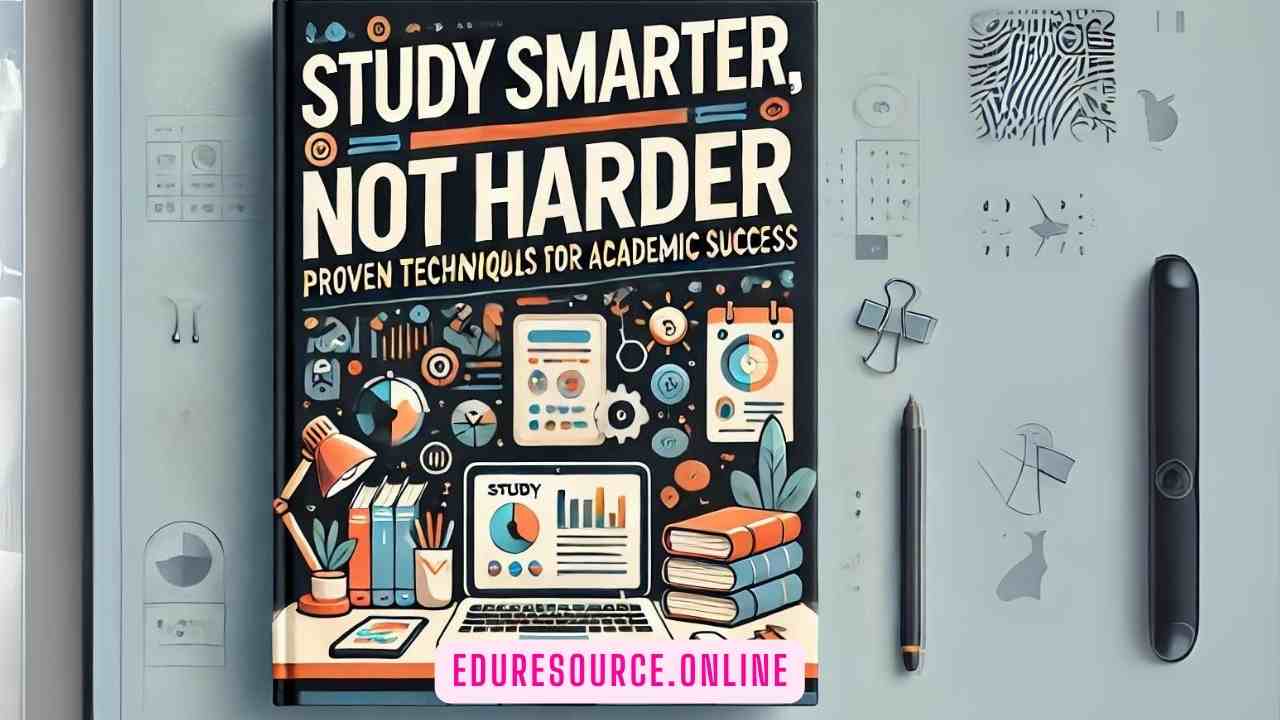Introduction
People often feel like they have to be perfect in school. All-nighters, copying down every word the teacher says, and drinking so much coffee it feels like your heart is going to explode all seem like the only ways to get straight A’s.
But there’s another way. With better methods, you can learn more and still keep your sanity. In this article, we will go over what those are.
Know how you learn
Everybody learns differently — whether that means seeing something written out, hearing someone explain it or doing it themselves. There are three main learning styles: visual, auditory, and kinesthetic.
Visual learners benefit from things like diagrams, charts, or written notes.
Auditory learners find it easier to remember things by listening to lectures or discussing subjects with other people.
Kinesthetic learners need hands-on activities and experiments in order for information to stick.
Knowing your learning style can help you study more effectively because you’ll be able to tailor your methods of reviewing to what works best for you.
Set goals that are achievable but will still push you
Setting specific, measurable, attainable, relevant, and time-bound (SMART) goals is important when trying to succeed academically. Break up big tasks into smaller ones so that studying doesn’t feel so overwhelming — plus it’s more satisfying when you can check things off as done!
Instead of making a goal as vague as “study biology,” opt for something clearer such as “read and summarize chapter 5 of the biology textbook by Tuesday.” Being specific keeps you on track.
Discovering Your Dream Job: Professional Career Counseling Advice 2024
Make a schedule
Having a well-balanced study schedule is essential. Designate certain times each day or week for particular subjects and stick with them — no slacking!
Don’t forget about taking breaks too; use the Pomodoro Technique if need be — study for 25 minutes then take a 5-minute break. After four cycles, take a longer break of 15-30 minutes. It helps you stay focused and keeps burnout at bay.
Be active, not passive
Active learning is when you actually engage with the material instead of just reading or listening to it. Try putting things in your own words when taking notes or explaining concepts to someone else — even apply information to real-life situations if possible.
When you actively work with what you’re trying to learn, it creates stronger connections in your brain which makes recalling it later easier. Challenge yourself with practice questions or discuss topics with classmates for a deeper understanding.
Branch out
Textbooks aren’t the end-all-be-all of knowledge. There are plenty of other resources that can help enhance your understanding of something beyond what’s written on pages.
Online courses, educational videos, podcasts, or interactive simulations can provide different explanations or perspectives.
Don’t be afraid to hit up libraries either; study groups and tutoring services are great places too.

Sometimes hearing things explained in a different voice or seeing them presented in an alternative format is all it takes for something to click.
Keep everything neat and tidy
A cluttered study space equals a cluttered mind — clean up! Keep your notes, textbooks, and supplies organized so that everything is easy to find when needed.
Use folders (or digital equivalents) to store documents related to certain subjects together; the same goes for assignments.
Having an environment free from distractions will allow you to focus better on what needs to be done. Also keep a planner (or use digital calendars) so deadlines, exams, and study sessions don’t sneak up on you!
Maintaining Your Health
In order to work at its best, your brain needs fuel. This means that you need to have a balanced diet, exercise regularly and sleep enough.
Also, do not try to cram everything into one night because lack of sleep can make it hard for you to concentrate and remember things.
You might be surprised how much mindfulness can help with stress relief while keeping yourself mentally sharp as well; therefore try some techniques like meditation or controlled breathing exercises from time to time.
Feedback And Reflections
Make sure you get feedback on your assignments regularly – teachers, classmates or mentors are good sources of constructive criticism which can point out areas where you need improvement most and thus direct studying towards them more effectively.
What this also implies is that sometimes we have to think about what methods worked in the past versus those that didn’t work so well during previous attempts at learning something new; hence adjust strategies accordingly since continuous improvement forms part of smarter studying.
Using Technology
The digital era has brought about numerous apps and tools that can be used alongside conventional study methods for increased efficiency in gaining knowledge; for instance, flashcard apps like Anki, note-taking software such as Evernote, or organizational apps like Trello among others.
With technology comes sharing opportunities – virtual groups where students collaborate with each other through discussions held on forums established online to facilitate studies electronically. So embrace these platforms as they will only serve to supplement your current study plan.
Positive Mindset
Your attitude determines everything when it comes down to academic performance hence always maintain positivity throughout all stages involved in the education process believing wholeheartedly that success is possible if one works hard enough towards achieving their goals then showing up enthusiastic about what they are learning can make a lot of difference too.

Challenges should no longer appear scary but rather viewed as stepping stones towards personal growth since now motivation might become an issue once again so keep reminding yourself why each milestone was set and celebrate achieving them even if it’s just a little bit at times.
Scholarship Tales of Triumph: Learn from the Best and Get Inspired 2024
In Conclusion
Smarter studying is not only about making choices that promote learning but also ensuring one’s wellbeing in the process. This means understanding how you learn things, setting clear objectives, having a routine that guides daily activities involving education, being actively involved during lessons among other things such as using different materials or staying organized all through.
Take care of your health as well by eating right, exercising regularly, and getting enough rest since this could greatly impact cognitive abilities besides memory enhancement; thus avoid sleepless nights if possible for they usually bring about difficulties in focusing attention span together with mental retention power.
Seek guidance from various sources like teachers, classmates, or mentors who might provide useful tips on what needs improvement most based on their past experiences regarding similar tasks undertaken before.
Also, try incorporating technology into studies where necessary because its presence has revolutionized learning processes over time thereby making them more efficient than ever thought possible previously.
